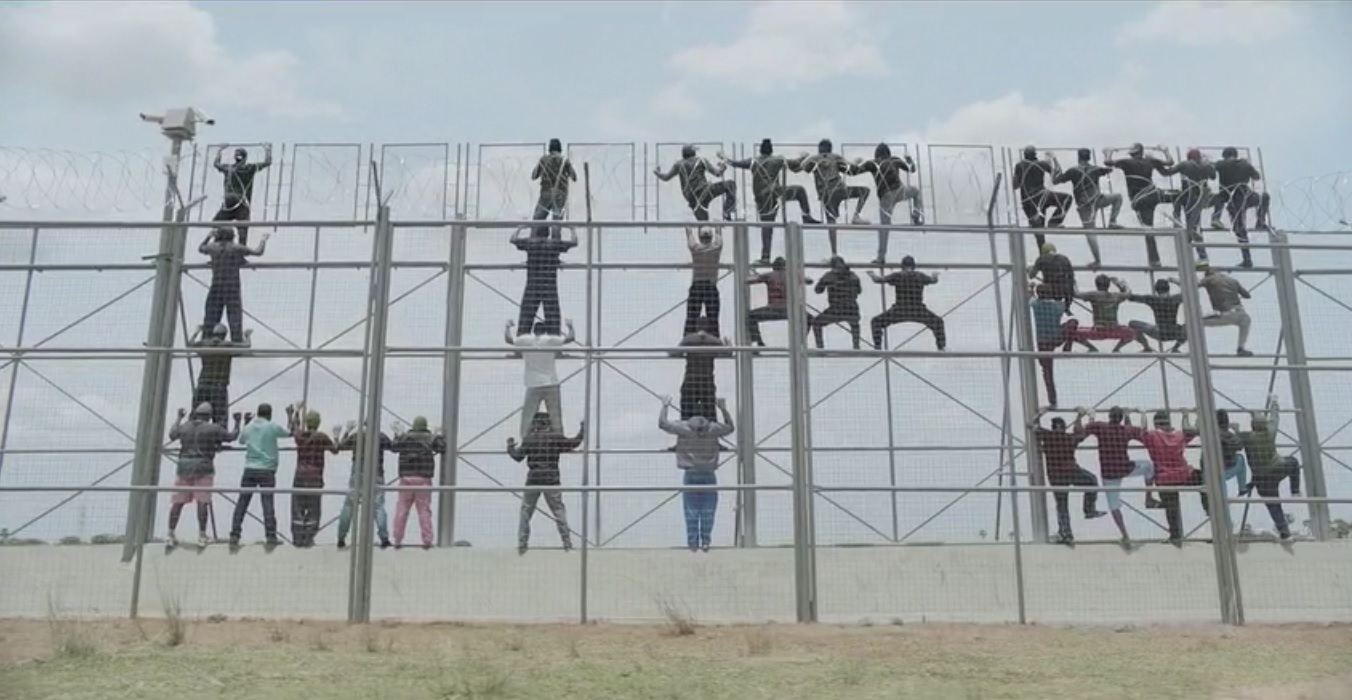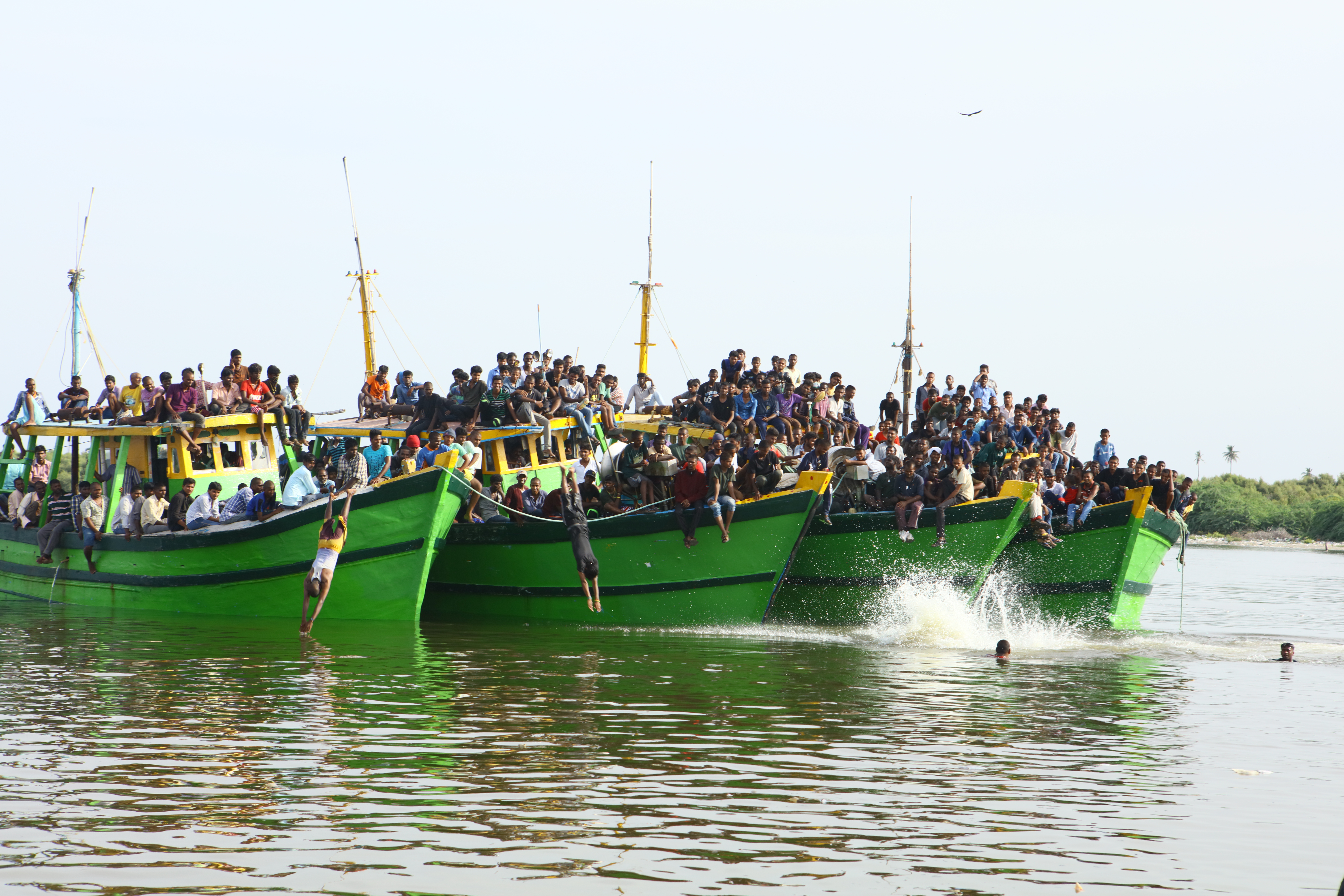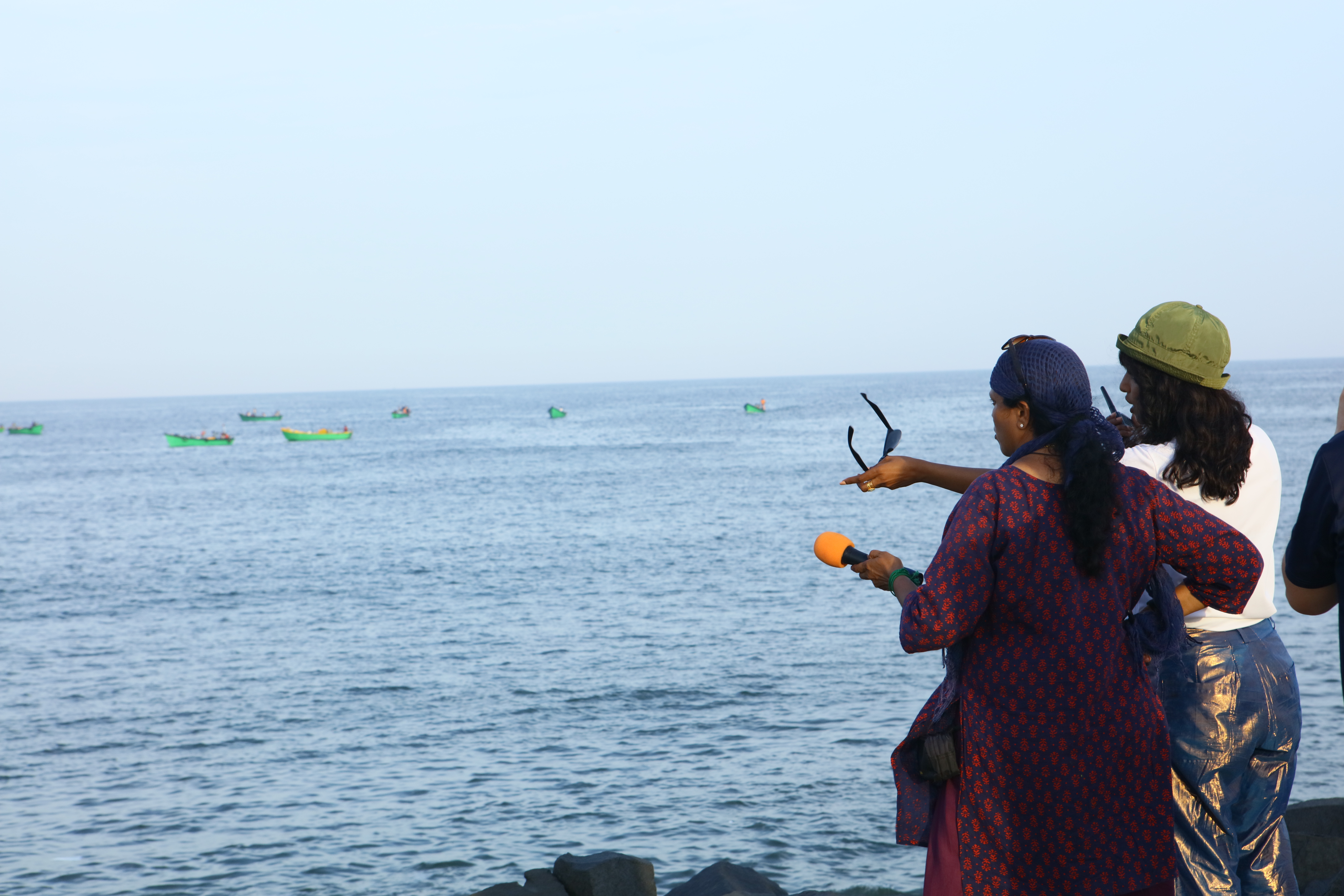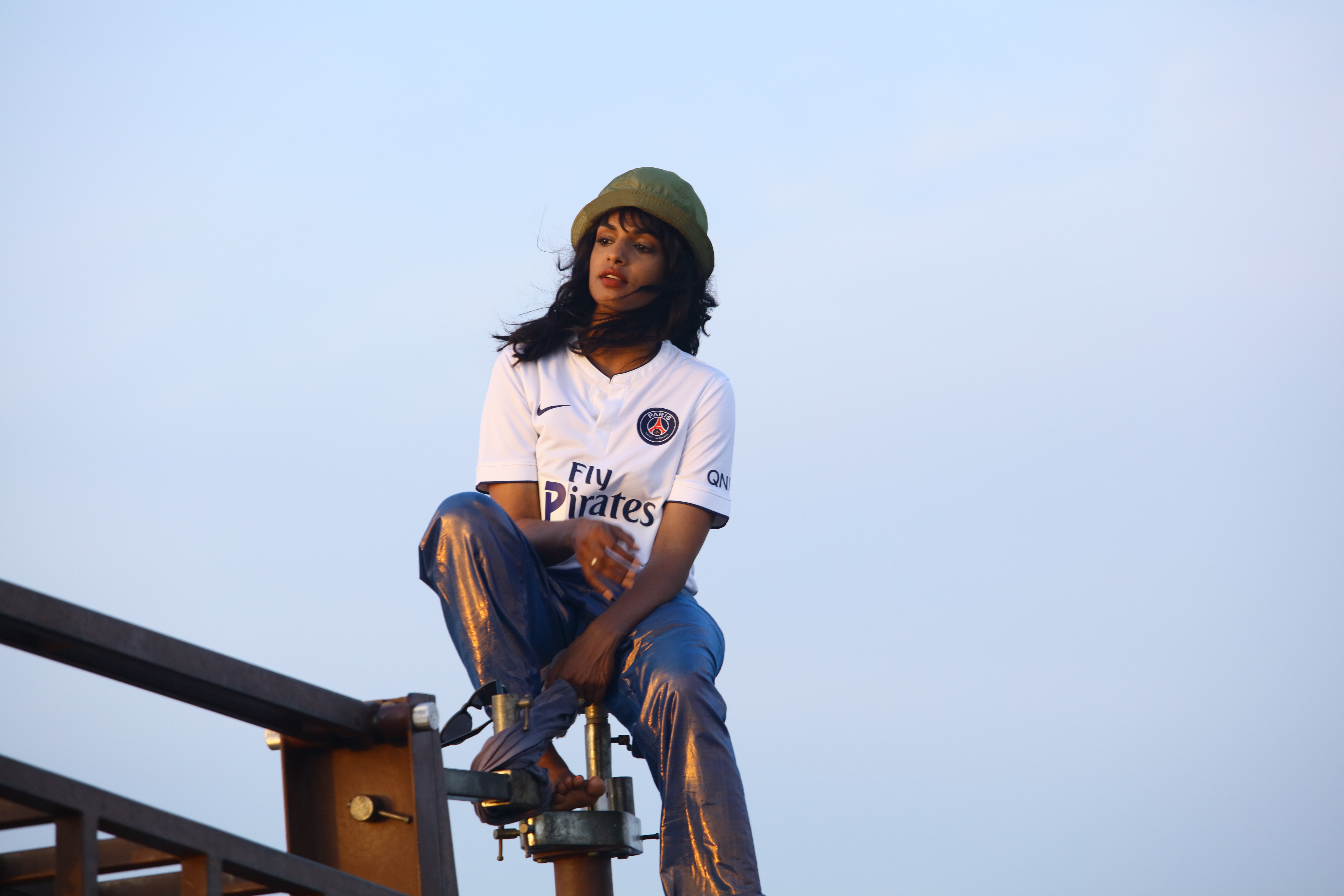 |
| Still from Borders video by M.I.A. |
As someone who seems to be so fearless in politicising her work, Maya does not appear to have much patience for those who expect her to shy away from it.
 |
Speaking about her controversial experience performing at Glastonbury, she explains:
“I had a lot of Tamil kids come up on stage and they were all medics. At the last minute I decided to put t-shirts on them saying #StopTamilDeportations. I was having a massive fight with the BBC backstage just before I was going on stage because they said I can’t be political. Then they gave me a choice and said either you’re filmed or not filmed. If you use the t-shirts we’re not going to film you. I had to go through that decision right there and then, a minute before I’m about to go on stage to perform at Glastonbury.”
“I should’ve been doing something like breathing exercises or whatever, but instead I’m there thinking actually it’s super important for me to make sure I represent the 200 something Tamil asylum seekers that are about to be deported back to their death tomorrow, rather than be popular like Beyonce and have the same chance to be broadcast live on television whilst I’m doing the Glastonbury. And you had to make a decision really quickly with either the head of an aspirational musician that wants to be as famous as possible, or you do it as a human thing and say this is the most important thing. Saving one person from being deported is worth the sacrifice.”
“When you go home after that you have to deal with people that don’t get it and don’t know the intricacies, and ask ‘why aren’t you more famous?’. And they don’t realise the politics behind every single step you make as a musician, of toeing the line for what you’re trying to stand up for, or protect, or speak for. Those hurdles come up every day, because if you speak up for this person, you lose that opportunity. Or if you cover this demographic then you lose that other demographic.”
“I made this Borders video showing a bunch of so called migrants, and I’ve probably lost the rest of my deal because I haven’t made a sexy video. You have to take those risks and suffer the consequences. And they’ve been there from day one because I haven’t wanted to let go of the fact that I was coming from where I was coming from and my experiences are what I make. And being a Tamil is part of it.”
 |
But it isn’t just establishment media and corporate giants that Maya has gripes with. “I feel that some migrants and refugees sometimes forget their roots and completely deny what they come from and turn a blind eye,” she says. She’s discerned this from her experience with the Tamil students on stage with her at Glastonbury, an apparently unexpected thorn in her political side.
“All those kids I took up on stage at Glastonbury had a fight with me afterwards because they didn’t want to be political Tamils, because they were afraid to be opinionated about deportation. They’ve been taught not to go so hard on that subject, because they don’t want to be restricted and have their chance to work in Sri Lanka and be accepted by the new government to be revoked. They just didn’t want to be put in a political light.”
“Twenty future Tamil doctors kicking off about not wanting to be political and discuss the deportation of their brothers and sisters – that was kind of interesting.”
Maya demonstrates some sympathy for the fears of Tamils, especially Tamil youths that are reluctant to be involved in politics. Her understanding of the context draws attention to the fact that any diaspora Tamil that has publicly dissented against the Sri Lankan state’s treatment of Tamils generally does not plan a casual holiday back to the island, for fear of their safety.
While Maya is unhesitant in using her music and art to relay the turmoil of her origins or to confront the power structures that led to her experiences as a child in a war-zone and as a refugee in a big city, she is deeply perceptive of the tranquilising effects of denial.
“When we first arrived, we wanted to disconnect from Sri Lanka because it was so painful. Not because we were embarrassed but we didn’t want to tell anyone we were from Sri Lanka because you had to explain where it was, what was happening. So it was really easy at the time because you didn’t have to relive all your memories.”
“It was a psychological denial, so you could embrace the new culture. What displacement and war and violence do to children is massive. It was like a self-defence mechanism but as I got older and you saw it happen to lots of different people in lots of different countries, you couldn’t really deny the truth just in order to aspire to be a popstar or super-rich.”
 |
